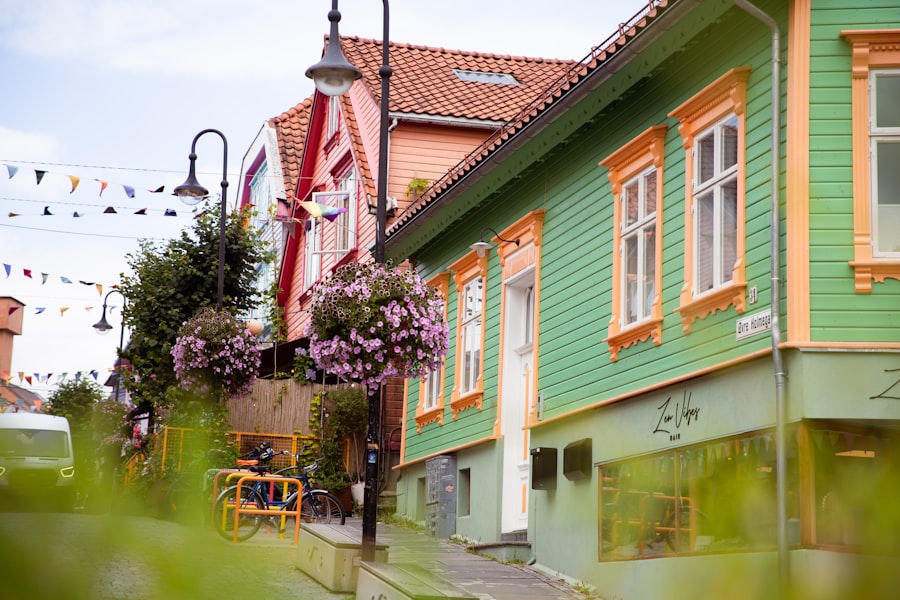Norway is renowned for its progressive stance on human rights, and this extends to the rights of individuals with disabilities. The country has ratified the United Nations Convention on the Rights of Persons with Disabilities, which underscores its commitment to ensuring that people with disabilities enjoy the same rights and freedoms as everyone else. This legal framework not only promotes equality but also mandates that public services, including housing, education, and healthcare, be accessible to all.
The Norwegian government has implemented various policies aimed at fostering inclusivity, ensuring that individuals with disabilities can participate fully in society. Moreover, the Norwegian Disability Act serves as a cornerstone for protecting the rights of people with disabilities. It outlines the responsibilities of public authorities to provide necessary support and accommodations.
This includes ensuring that buildings are accessible, providing assistive technologies, and facilitating access to public transport. Understanding these rights is crucial for individuals with disabilities and their families, as it empowers them to advocate for themselves and seek the support they need to lead fulfilling lives in Norway. Plan your relocation with confidence. Book a personal meeting with the Norway Relocation Group today. https://norwayrelocation.no/one-hour-strategy-session/
Summary
- People with disabilities in Norway have rights protected by law, including access to housing and support services.
- It is important to identify the specific needs of individuals with disabilities when searching for accessible housing in Norway.
- Navigating the Norwegian housing market for accessibility may require research and assistance from relevant government agencies or advocacy organizations.
- Government support and resources are available for individuals with disabilities in Norway, including financial assistance for housing modifications.
- Collaboration with disability advocacy organizations can provide valuable support and guidance in finding accessible housing and navigating legal obligations.
Identifying the Specific Needs of Individuals with Disabilities
Every individual with a disability has unique needs that must be identified and addressed to ensure their well-being and independence. This process often begins with a comprehensive assessment that considers various factors, including the type of disability, personal preferences, and lifestyle requirements. For instance, some individuals may require mobility aids or modifications to their living environment, while others may need assistance with daily activities or access to specialised healthcare services.
By recognising these specific needs, individuals can better navigate the resources available to them in Norway. In addition to physical needs, emotional and social considerations are equally important. Individuals with disabilities may face challenges related to isolation or mental health, making it essential to identify support systems that can provide companionship and encouragement.
Engaging with local communities, disability organisations, and support groups can help individuals build connections and find resources tailored to their specific circumstances. The Norway Relocation Group can play a pivotal role in this process by offering guidance and support in identifying these needs, ensuring a smoother transition into Norwegian society.
Navigating the Norwegian Housing Market for Accessibility

Finding suitable housing is a critical step for individuals with disabilities seeking independence in Norway. The housing market can be complex, particularly when searching for properties that meet specific accessibility requirements. It is essential to consider factors such as location, proximity to public transport, and access to essential services when evaluating potential homes.
Additionally, individuals should be aware of the various types of housing available, from private rentals to public housing options designed specifically for people with disabilities. The Norway Relocation Group can assist individuals in navigating this intricate housing landscape by providing valuable insights into accessible housing options. Their expertise can help identify properties that meet specific needs while also considering budget constraints.
Furthermore, they can facilitate communication with landlords and housing providers to ensure that accessibility features are adequately addressed during the search process.
Accessing Government Support and Resources
In Norway, various government support systems are in place to assist individuals with disabilities in securing suitable housing and accessing necessary resources. The Norwegian Labour and Welfare Administration (NAV) plays a crucial role in providing financial assistance, guidance on available services, and support for those seeking employment or education opportunities. Individuals may be eligible for benefits such as housing allowances or disability pensions, which can significantly alleviate financial burdens.
Additionally, local municipalities often have dedicated services for people with disabilities, offering tailored support based on individual needs. These services may include assistance with finding accessible housing or connecting individuals with relevant community resources. Understanding how to access these government supports is vital for individuals with disabilities and their families, as it can greatly enhance their quality of life and promote independence.
Working with Disability Advocacy Organizations
Disability advocacy organisations play an essential role in supporting individuals with disabilities in Norway. These organisations work tirelessly to promote awareness of disability rights, provide resources, and advocate for policy changes that benefit the community. By collaborating with these organisations, individuals can gain access to valuable information about their rights and available services while also connecting with others who share similar experiences.
The Norway Relocation Group can facilitate connections between individuals and relevant advocacy organisations, ensuring that they receive comprehensive support throughout their transition. These partnerships can empower individuals to navigate challenges more effectively while also fostering a sense of community and belonging within Norwegian society.
Exploring Adaptations and Modifications for Accessibility

When it comes to creating an accessible living environment, adaptations and modifications are often necessary to meet the specific needs of individuals with disabilities. This may include installing ramps, widening doorways, or adding grab bars in bathrooms. Understanding what modifications are required is crucial for ensuring safety and comfort within the home.
In Norway, there are various resources available to assist individuals in making these adaptations. Local municipalities may offer financial support or grants for home modifications aimed at improving accessibility. Additionally, there are specialised contractors who focus on creating accessible living spaces tailored to individual needs.
The Norway Relocation Group can provide guidance on identifying reputable contractors and navigating the process of securing funding for necessary modifications.
Considering Different Types of Housing Options
When searching for accessible housing in Norway, it is essential to consider various types of housing options available. These may include private rentals, cooperative housing (borettslag), or public housing specifically designed for individuals with disabilities. Each option comes with its own set of advantages and challenges, making it crucial for individuals to assess their priorities and preferences before making a decision.
For instance, cooperative housing often fosters a sense of community among residents while providing shared resources and support systems. On the other hand, private rentals may offer more flexibility in terms of location and amenities but could come at a higher cost. The Norway Relocation Group can assist individuals in evaluating these options based on their unique circumstances, helping them make informed decisions about their housing choices.
Collaborating with Housing Providers and Landlords
Establishing a positive relationship with housing providers and landlords is vital for individuals with disabilities seeking accessible accommodation in Norway. Open communication about specific needs and requirements is essential to ensure that landlords understand the importance of accessibility features within the property. This collaboration can lead to successful negotiations regarding necessary modifications or adjustments that may be required.
The Norway Relocation Group can facilitate these discussions by acting as an intermediary between individuals and landlords. Their expertise in navigating the housing market allows them to advocate effectively for tenants’ rights while ensuring that landlords are aware of their obligations regarding accessibility. This collaborative approach can lead to more successful outcomes for individuals seeking suitable housing.
Budgeting for Accessibility Features and Modifications
Budgeting for accessibility features and modifications is an important consideration when seeking suitable housing in Norway. Individuals must assess their financial situation and determine how much they can allocate towards necessary adaptations without compromising their overall quality of life. This may involve exploring various funding options available through government programmes or non-profit organisations dedicated to supporting individuals with disabilities.
The Norway Relocation Group can provide valuable insights into budgeting strategies tailored specifically for accessibility needs. They can help individuals identify potential sources of funding or financial assistance while also offering guidance on prioritising modifications based on urgency and necessity. By taking a proactive approach to budgeting, individuals can ensure that they secure a living environment that meets their needs without incurring overwhelming financial stress.
Understanding the Legal Obligations of Housing Providers
Housing providers in Norway have legal obligations regarding accessibility under the Disability Act and other relevant legislation. These laws mandate that landlords ensure their properties are accessible to individuals with disabilities, which includes making reasonable accommodations when necessary. Understanding these legal obligations is crucial for tenants seeking accessible housing, as it empowers them to advocate for their rights effectively.
The Norway Relocation Group can assist individuals in understanding these legal frameworks by providing information about tenant rights and landlord responsibilities. This knowledge equips tenants with the tools they need to address any issues related to accessibility proactively while fostering a more equitable housing environment for all.
Building a Support Network for Successful Housing Transition
Transitioning into a new living environment can be challenging for anyone, but it can be particularly daunting for individuals with disabilities. Building a robust support network is essential for ensuring a successful transition into accessible housing in Norway. This network may include family members, friends, disability advocacy organisations, healthcare professionals, and community groups that provide emotional support and practical assistance.
The Norway Relocation Group plays a vital role in helping individuals establish this support network by connecting them with relevant resources and organisations within their local communities. By fostering relationships with others who understand their experiences, individuals can navigate challenges more effectively while also enhancing their sense of belonging within Norwegian society. In conclusion, navigating the complexities of finding accessible housing in Norway requires a multifaceted approach that encompasses understanding rights, identifying specific needs, accessing government support, collaborating with advocacy organisations, exploring adaptations, budgeting effectively, understanding legal obligations, and building a supportive network.
The Norway Relocation Group stands ready to assist individuals throughout this journey by providing expert guidance tailored to their unique circumstances. As part of this journey towards integration into Norwegian society, language proficiency plays a crucial role in fostering connections and enhancing communication skills. The NLS Norwegian Language School in Oslo offers comprehensive Norwegian courses designed specifically for newcomers looking to improve their language skills.
By enrolling in these courses, individuals not only gain valuable language proficiency but also immerse themselves in Norwegian culture—an essential aspect of building relationships within their new community. With the right support from both the Norway Relocation Group and NLS Norwegian Language School, individuals with disabilities can successfully navigate their transition into an inclusive and welcoming society.
Register for a Norwegian class at the NLS Norwegian Language School now!

